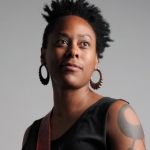
Dr. Brea M. Heidelberg
Diversity in Arts Administration is Not Inevitable
Posted by Mar 14, 2016

Dr. Brea M. Heidelberg
This report treats diversity as an inevitability. This is true when it comes to demographics–we are all familiar with the statistics about how the country is becoming more racially diverse. However, true diversity (including age, gender, physical ability, and race) is not inevitable when it comes to working and advancing in our field. Numbers do not change power structures–marginalized people often outnumber those in power. It is the assumption that diversity will magically happen that permits some leaders within the field to sit idly by while the sector disenfranchises and loses quality talent. Change is not a passive process.
Read More





 Ann-Laura Parks
Ann-Laura Parks






